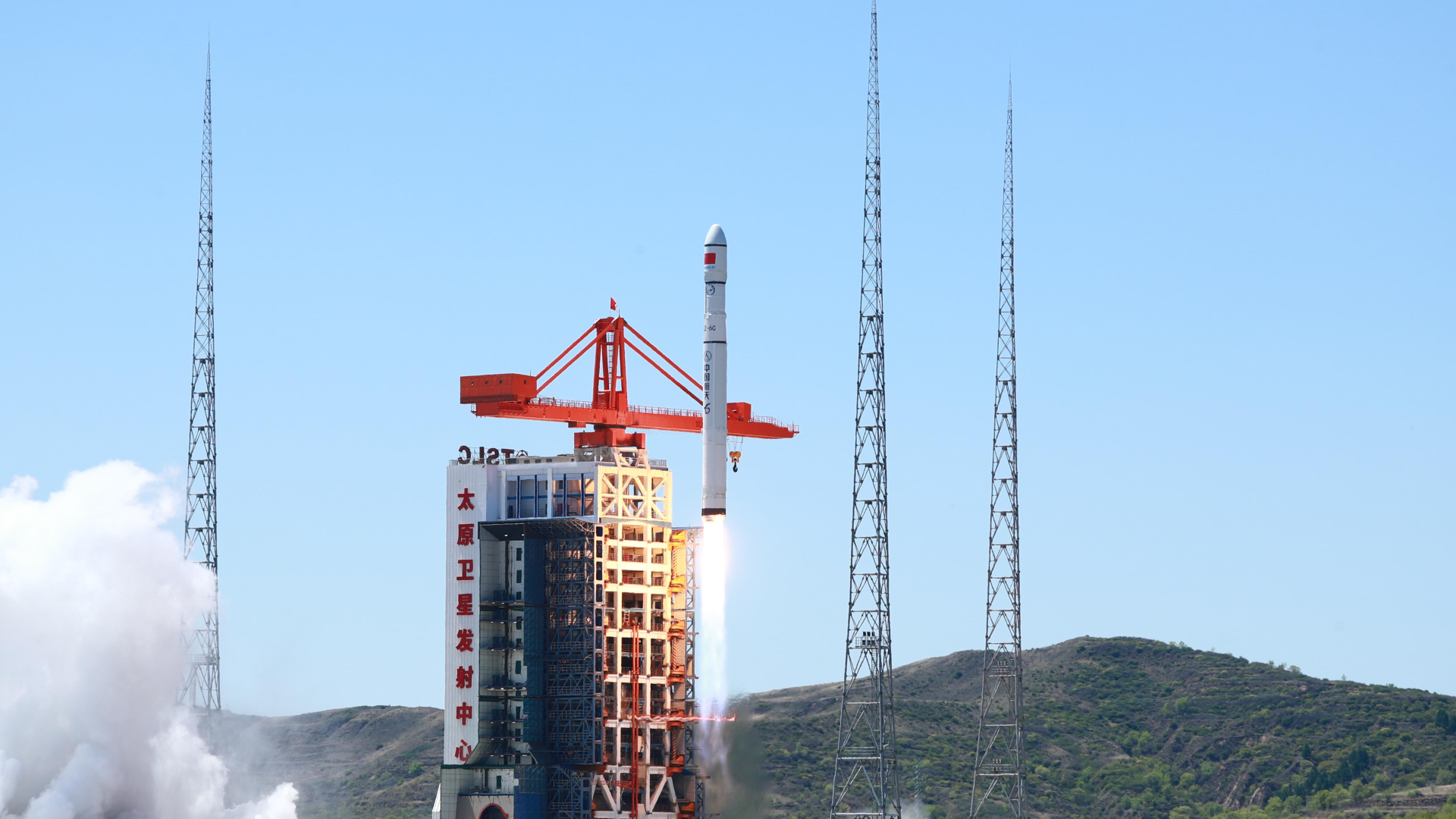China's commercial space industry advances as technological innovations surge
As China advances in its pursuit of high-quality development, emerging quality productive forces are becoming increasingly important. Notably, the commercial space sector is one of the key contributors, witnessing rapid growth and establishing a significant presence on the global stage.

In recent developments, December 2023 saw Beijing Interstellar Glory Space Technology, also known as iSPACE, successfully carry out a test on its reusable launcher. This test represents crucial progress in establishing a fully operational, domestically produced reusable rocket within China's commercial spaceflight sector.
The private aerospace firm iSPACE is ambitious in its goal to bridge the gap with leading global rocket technologies. "There is still a long way ahead. But we're catching up fast," said Anna Choi, vice manager of iSPACE, in an interview with Xinhua.
Back in 2019, iSPACE made headlines by launching its SQX-1 Y1 rocket, which successfully placed two satellites into a 300-kilometer orbit, marking the first such achievement by a private Chinese company.
A significant milestone was reached with a test conducted on December 10 of the previous year, which validated the Hyperbola-2Y as a reusable liquid oxygen and methane rocket, a first in the nation. This rocket is part of iSPACE's ambitious plan to deploy a reusable medium-lift rocket by late 2025.
Since its foundation in 2016, iSPACE has grown its team from fewer than 10 to over 400 members. Choi highlighted the rapid development within both the company and the broader industry, driven by technological advancements and supported by government policies.
The commercial aerospace field in China has seen a surge of activity, particularly since 2014 when the government began encouraging private investment in the sector. Media sources noted that in 2023, the nation's private commercial spaceflight concerns successfully executed over 10 launches.
Majority of these firms, including iSPACE, are based in Beijing, where they benefit from a substantial talent pool and favorable governmental policies.
In a strategic move to further boost the sector, Beijing announced in February 2024 plans to create a specialized "Rocket Street" within the Beijing Economic-Technological Development Area (BDA), a project that began construction last month. "Through the 'Rocket Street' program, we hope to leverage the cluster advantage to facilitate the development of the sector," a BDA official stated.
This initiative is part of Beijing’s larger efforts to support the commercial aerospace sector, reflecting China's broader objective to evolve new quality productive forces and ascend the global value chain. The government's annual work report identified commercial spaceflight as one of the critical areas for focus.
The national agenda also includes promoting other strategic industries like bio-manufacturing, the low-altitude economy, quantum technology, and life sciences to achieve sustainable growth.
Reflecting on the increasing government backing, Choi mentioned that the local government has offered subsidies for innovation centers focused on reusable rocket technologies and is aiming to attract more private investments into the sector.
Beyond Beijing, several other Chinese cities and regions are also pursuing the development of the commercial aerospace industry. "This is a sector that requires pioneering courage. We are committed to innovation and confident for the catch-up and beyond," concluded Choi.
Olivia Brown for TROIB News
Discover more Science and Technology news updates in TROIB Sci-Tech












